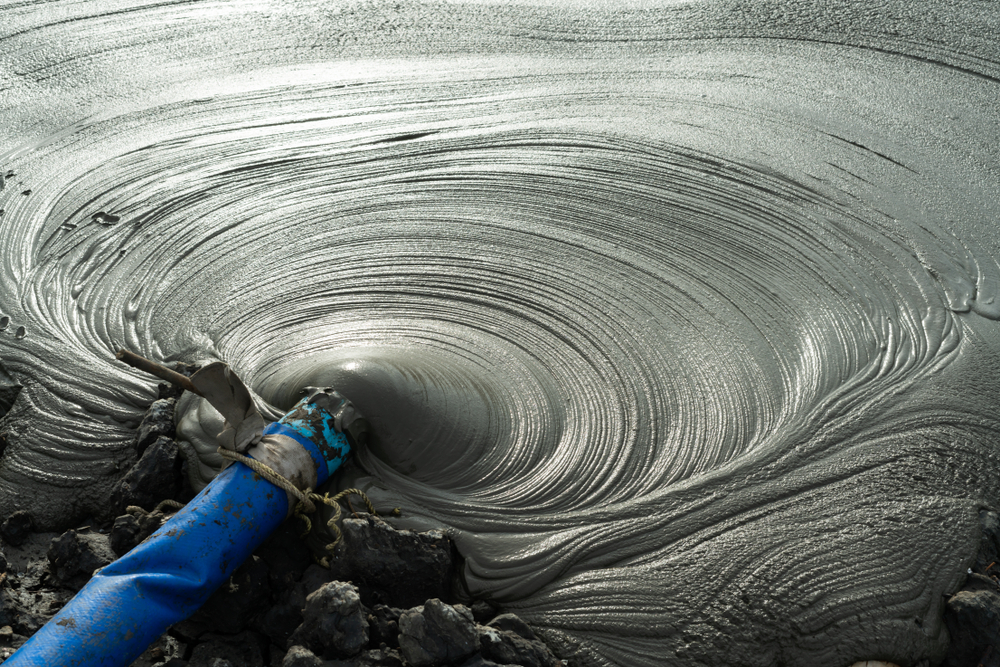IP 89 Viscosity and Gel Strength of Drilling Fluids Test
The IP 89 standard is a critical protocol used to evaluate drilling fluids (mud) in the oil and gas sector. This test measures two key properties that are essential for ensuring the effective performance of mud: viscosity and gel strength. Viscosity is crucial as it affects fluid flow, while gel strength determines how well the mud can hold solids in suspension.
Viscosity is measured to ensure the drilling fluid can move through pipes efficiently without excessive pressure drop, which is vital for maintaining operational efficiency during drilling operations. Gel strength, on the other hand, is important because it helps stabilize the borehole and prevent caving of the wellbore walls, especially in formations with weak rock structures.
Accurate testing according to IP 89 ensures that the drilling fluid meets the required specifications for both on-site performance and environmental considerations. This test is particularly relevant when dealing with complex drilling environments where mud must perform optimally under various conditions such as temperature extremes, pressure variations, and different formation types.
The test involves preparing a sample of the drilling fluid according to standard procedures, then measuring its viscosity at specific temperatures (typically 20°C and 95°F) using viscometers. For gel strength testing, Brookfield rheometers or similar instruments are used under controlled conditions to measure how much force is needed to flow through a small opening.
The results of these tests provide critical data that helps in selecting the right mud for different drilling operations. This ensures safety and efficiency by preventing issues like stuck drill pipes (jelly neck), which can occur if the gel strength is too high, or poor flow characteristics due to insufficient gel strength.
Understanding the IP 89 standard also involves recognizing its broader implications in the oil and gas industry. It supports compliance with international standards and ensures that drilling fluids meet environmental regulations by minimizing fluid loss into the formation and reducing the risk of contamination from the wellbore.
This test is particularly important for R&D engineers who are developing new mud formulations, as it provides insights into how changes in formulation might affect performance. For quality managers and compliance officers, IP 89 testing ensures that materials meet regulatory requirements and operational needs, thereby contributing to overall project success.
The importance of this test cannot be overstated, especially in high-risk drilling environments where even minor issues with mud properties can lead to significant delays or accidents. By adhering to the strict protocols outlined in IP 89, laboratories ensure that their testing is accurate and reliable, providing actionable data for decision-makers.
Scope and Methodology
| Test Parameter | Description |
|---|---|
| Viscosity at 20°C | Measures the fluid's resistance to flow under standard conditions. |
| Gel Strength at 95°F | Evaluates the mud's ability to hold solids in suspension and stabilize the borehole. |
| Sample Preparation | Involves mixing drilling fluid according to specified ratios and aging it for a defined period. |
| Instrumentation Used | Viscometer for viscosity, Brookfield rheometer for gel strength. |
| Data Analysis | Interprets results to ensure they meet the acceptance criteria specified in IP 89. |
Environmental and Sustainability Contributions
- Mud testing helps in minimizing fluid loss into the environment, reducing contamination risks.
- Optimized drilling fluids can enhance borehole stability, leading to reduced re-drilling rates.
- The test ensures that mud is used efficiently, conserving resources and operational costs.
By ensuring that drilling fluids meet IP 89 standards, laboratories contribute to sustainable oil and gas extraction practices. This not only helps in protecting the environment but also supports the industry's commitment to responsible resource management.
Competitive Advantage and Market Impact
- Accurate testing ensures compliance with international standards, boosting trust among clients.
- Proven expertise in IP 89 testing can differentiate a laboratory from competitors, attracting more business.
- Advanced instrumentation and methodology enhance the accuracy of results, leading to better-informed decisions.
In today’s competitive market, these factors contribute significantly to a laboratory's reputation and success. By offering reliable IP 89 testing services, laboratories can secure contracts with major oil and gas companies, thereby enhancing their market presence.





